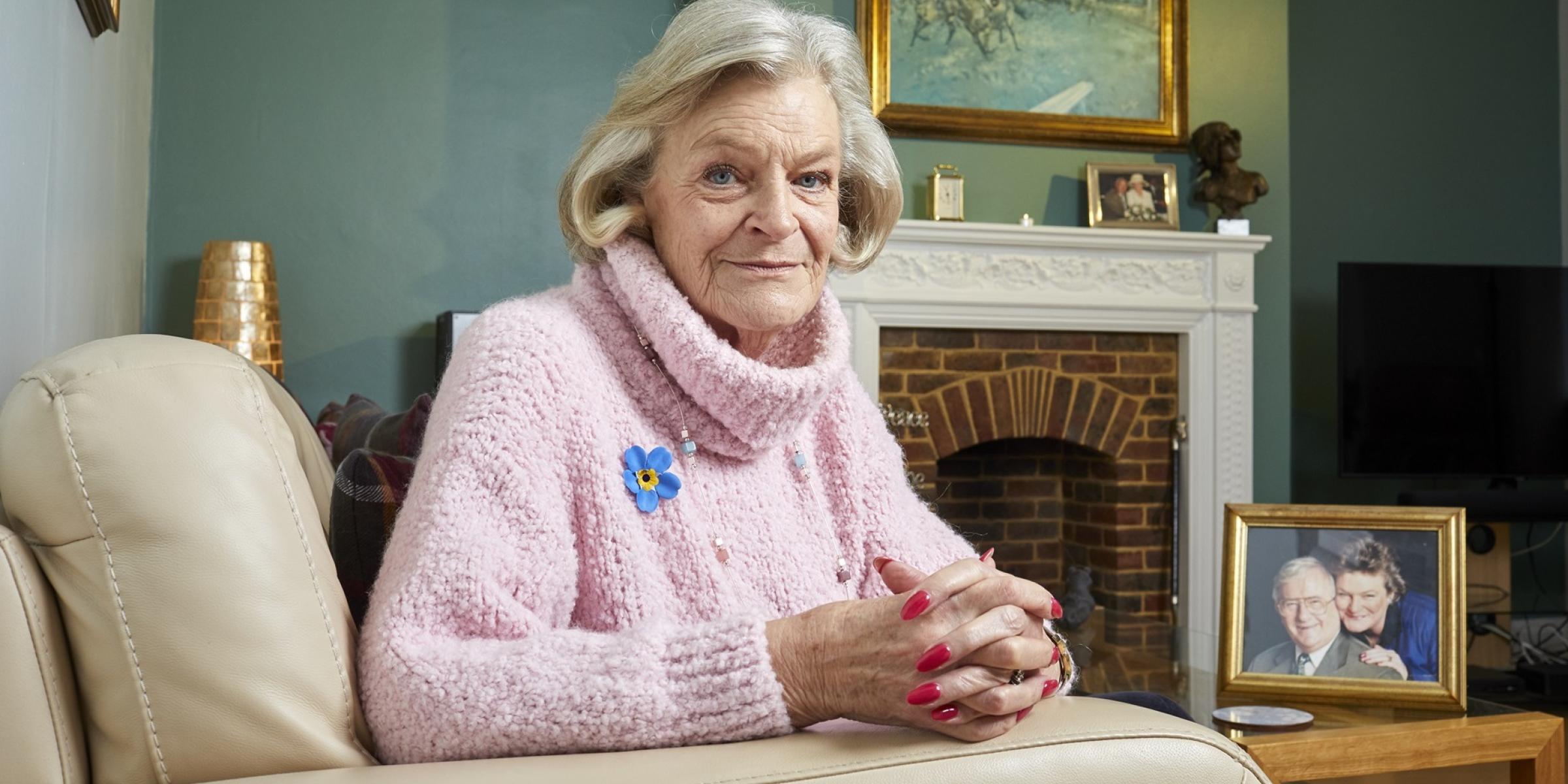
I wear my Forget me not Appeal badge for Eric
Liz cared for her husband, Eric who was diagnosed with mixed dementia in 2016 until his death in April 2022 at the age of 91. Here she shares their story and why she knows the Forget me not Appeal is vital for the future of dementia research.
I noticed that Eric just didn't seem to be himself
Eric had a lot of life in him. He was very successful and had a big personality. He had worked as director and chairman of different companies.
He was very on the ball, very sharp. But when I retired and was able to spend more time with him, I noticed that he just didn’t seem to be himself. He was an excellent driver. But he began to forget routes he used to be able to do easily. Once he drove over a roundabout.
Getting a dementia diagnosis
Our GP did a memory test. That led to the Memory Clinic, where he got the diagnosis of Alzheimer’s disease and vascular dementia. We were given some leaflets and sent out into the big wide world. I didn’t know anything about dementia.
Over the years, things changed and they kept changing. He became unwilling to leave the house. People stopped calling. And our world became smaller and smaller. Caring for Eric became a full-time job with very little time off. Eric needed me a lot and that became exhausting.
How Eric's love of music helped with his dementia diagnosis
Soon after diagnosis, a carers’ charity was helping me through lots of assessment paperwork. They asked if Eric had any hobbies. And I said that he loved music. And she suggested Alzheimer’s Society’s Singing for the Brain.
The Singing for the Brain volunteers there are the kindest, nicest, most welcoming people. You walk in feeling a bit like the new kids at school, and they welcome you. They’ve got your name on the list. They give you a name badge, and suddenly, you are involved in this wonderful warm family.
Their kindness. Their empathy. They understand.
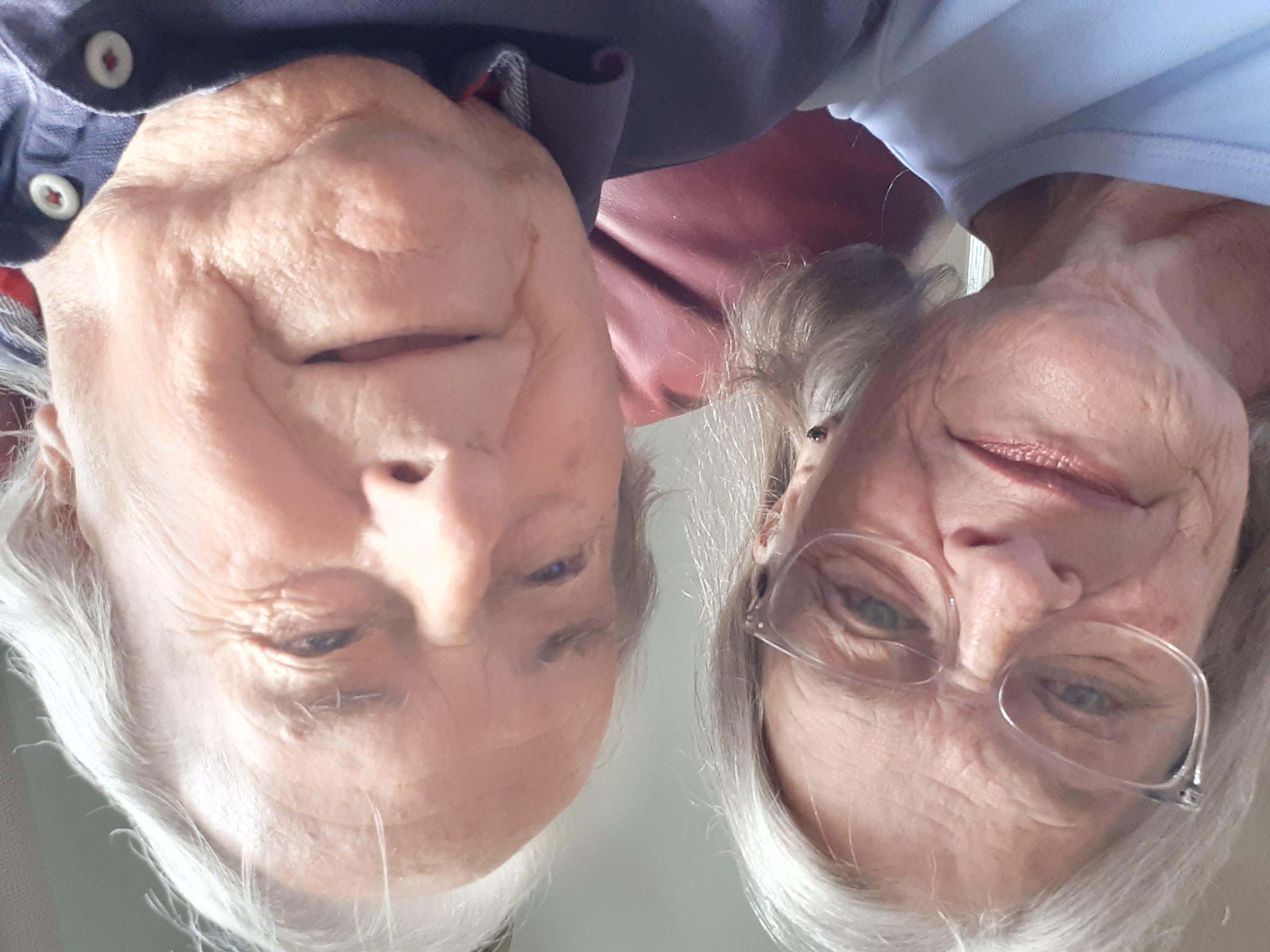
Coping with a Covid diagnosis with dementia
In late February 2022, Eric got Covid, and I contacted healthcare professionals, and because he had other health issues, they advised me to take him into hospital.
So he went into hospital, and was still quite mobile and he could talk and sing and eat proper meals. He recovered from Covid after about a week, but while he was in hospital, he had a hospital acquired infection, which meant that he had to stay longer. He lay in his bed in the corner and smiled and didn’t bother anyone.
Support for dementia patients in hospital
After three weeks, the hospital had moved Eric onto liquidized food, without asking me. When I asked a nurse, why this had happened, I was told they thought that I could feed him.
After Eric had been in hospital for about four weeks, I came in to find him sleeping – unresponsive. I asked to see a doctor. None came. I kept asking, still none came. Eventually, one came, and reassured me that all was well.
I got home less than an hour later and had a phone call from the hospital saying that Eric had died. I am so angry because I could have been with him. I could see something was wrong. I was told he was fine, but he was dying. I could have held his hand in those moments.
We, as a country, still have a long way to go to give people with dementia the care and the dignity that they deserve.
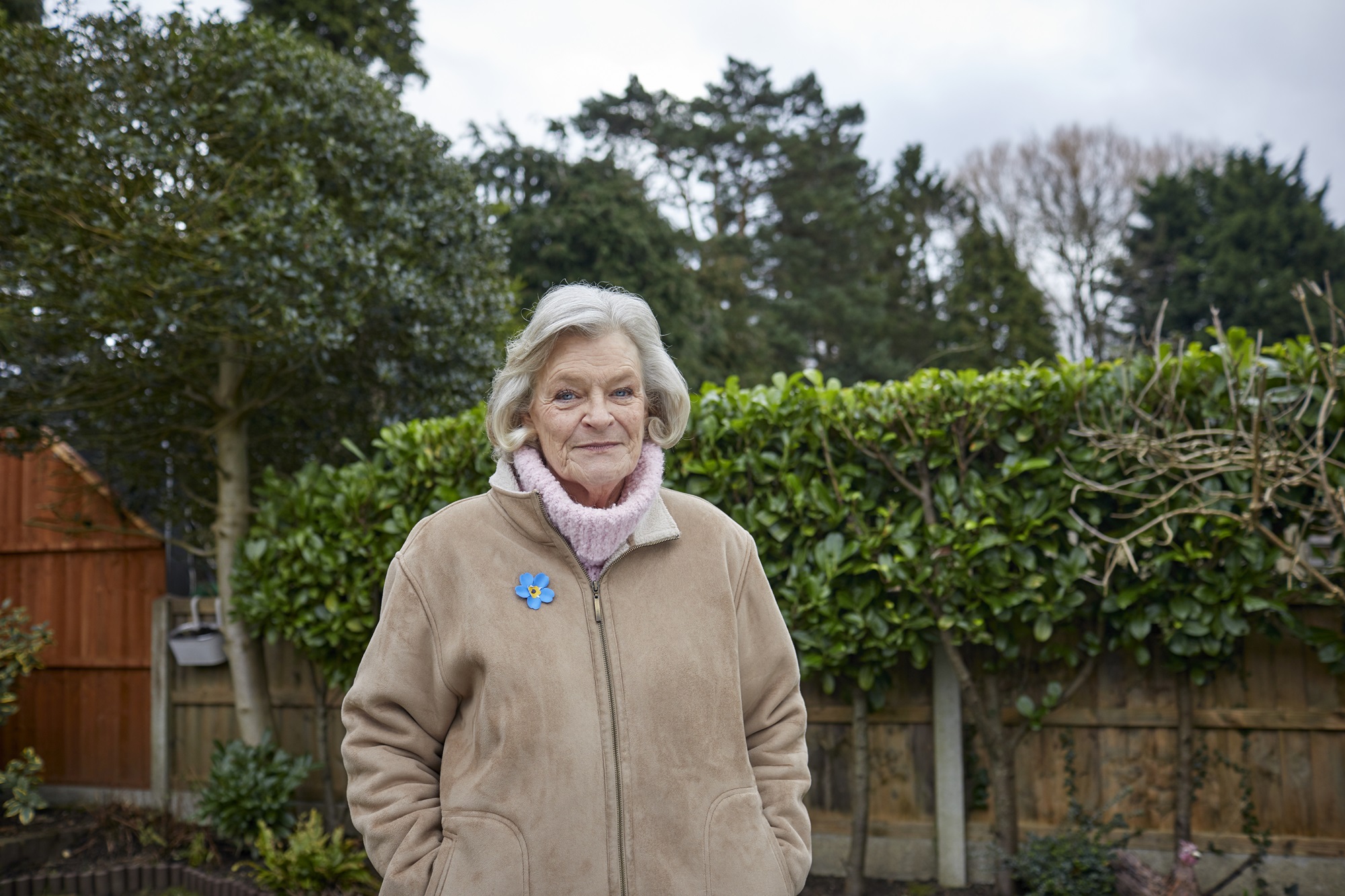
How the Forget me not Appeal can help with dementia research
With the Forget me not Appeal, there is hope for the future.
For Liz, the Forget me not Appeal is the chance to join the call to find a cure for dementia, and spread the word.
It is so important that everyone supports financing of research. Eric was too old for the medication, but this is for our future generations to come.
Help fund research into dementia
I was lucky because the people around me were very aware of dementia.
Eric was very sociable and he loved people. At the Salvation Army he still used to go and sing along and people saw the progression in him. This raised their awareness and also our inner circle and close family were all aware.
If we keep on talking about it and by wearing the badge, then perhaps more people will know and this will raise awareness and support. Support is growing but there is so much more to do.
The importance of wearing a Forget me not badge
When I wear mine it’s a conversation starter: people who have never seen it before ask me about it and I can begin a conversation about dementia and about the fundraising campaign.
If they do know about it then it starts people talking about dementia and I can talk about it first-hand and how important it is to fundraise.
Please give as much as you can afford and give it with a glad heart because it’s so worthwhile and so much appreciated.



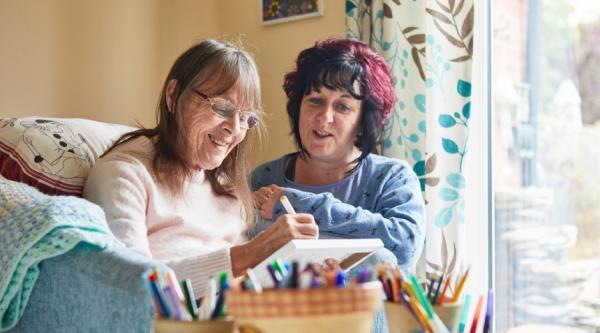

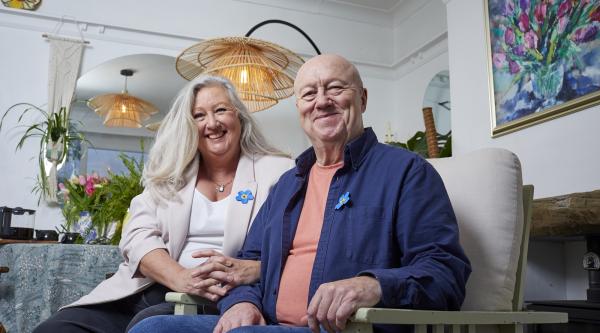
Yvonne Hemming
says